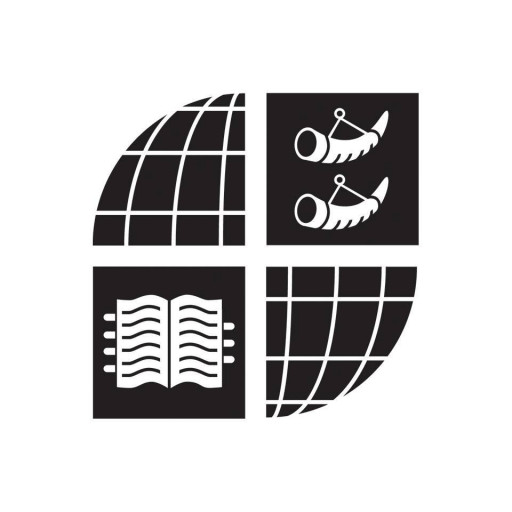Photos of university / #durhamuniversity
The BA in Classics at Durham University offers students a comprehensive and rigorous exploration of the ancient civilizations of Greece and Rome, their languages, literature, history, philosophy, and archaeology. This programme provides a unique opportunity to immerse oneself in the cultural heritage that has heavily influenced the foundations of Western civilization. Students will engage with a wide range of literary texts, historical sources, archaeological findings, and philosophical ideas, gaining a deep understanding of the classical world and its enduring legacy. The programme is designed to develop core skills such as critical analysis, research, and written and oral communication, which are highly valued in many career paths.
Students can choose from a variety of modules that cover ancient Greek and Latin language and literature, alongside courses in classical history, archaeology, art, and philosophy. The curriculum balances language acquisition with multidisciplinary studies, enabling students to read original texts in their original languages and interpret archaeological artifacts within their historical contexts. Durham’s Classics programme emphasizes independent research, with opportunities for dissertation work supported by expert academic staff. The university's strong links with museums and archaeological sites enhance practical learning experiences and fieldwork opportunities.
Throughout their studies, students will benefit from a vibrant academic community and access to numerous resources, including extensive libraries and digital repositories. The programme prepares graduates for careers in education, museum and cultural heritage sectors, publishing, journalism, and further postgraduate research. Overall, the Classics programme at Durham University aims to cultivate a lifelong appreciation for the ancient world, critical thinking skills, and a global perspective on human history and culture.
Content
The core of the Classics course is language, although how much language is studied and at what level depends upon the individual student. The course is perfect for those entering with A-levels in Greek and/or Latin, but it is also available to those who have never studied an ancient language before. We offer modules in both Latin and Greek, in both prose and verse, at every level.
Year 1
In the first year, all students take two interdisciplinary modules that serve to give everyone grounding in the central periods of Greek and Roman culture:
- Remembering Athens
- Monuments and Memory in the Age of Augustus.
Other first-year optional modules have previously included:
- Beginners’ Latin and Greek
- Intermediate Latin and Greek for those with an A-level or equivalent
- Greek Art and Architecture
- Early Greek Philosophy
- The Craft of the Ancient Historian
- Living in the Classical World.
Year 2
Many of the modules in the second year are broad surveys, for example of a historical period or a literary genre.
Students of Latin and Greek may carry on to a higher level in the second year, where the level depends on whether they took Beginners’ language in the first year or came in with an A-level.
Historical offerings have previously included:
- Archaic Greece
- Athens, Sparta and the Greek World
- History of The Hellenistic Age
- Crisis of The Roman Republic
- Emperors and Dynasties.
Cultural surveys have previously included:
- The Ancient Novel
- Traditions of Epic
- Greek Literature and The Near East
- Interpreting Greek Tragedy Today
- Creation and Cosmology
- Being Human: Classical Perspectives
- The Literary and Political Culture of The Roman Republic.
Year 3 (Year 4 if undertaking a Year Abroad)
All students write a Dissertation in the third year. You choose a topic at the end of your second year in consultation with an adviser, with whom you will meet regularly for guidance throughout year three. Students of Latin and Greek will proceed to the next level, with the texts becoming more difficult or fragmentary. Most other modules in the third year cover specific topics that arise out of the research interests of the members of staff.
Historical modules have previously included:
- Law and Society in Classical Athens
- Roman Syria
- Writing Alexander
- The World of Greek Rituals and Greeks and Persians.
Cultural topics have previously included:
- The Gods in Greek Literature
- Ancient Literary Criticism
- Love and Sex in Ancient Poetry
- Knowledge and Doubt in Hellenistic Philosophy.
Study Abroad
Single Honours courses include an optional European Studies element as part of the ERASMUS scheme, whereby students may spend the third year of a four-year course studying at a European university. We currently have ERASMUS exchange links with universities in Belgium (Liege), France (Bordeaux), Germany (Tubingen, Munich), Greece (Athens), Italy (Bologna, Rome, Milan, Vercelli), the Netherlands (Free University, Amsterdam, Groningen), Spain (Seville) and Switzerland (Fribourg), with further to come. Students interested in studying abroad should apply to transfer to the European Studies course after their first year of study.
Subject requirements, level and grade
In addition to satisfying the University’s general entry requirements, please note:
- We welcome applications from those with other qualifications equivalent to our standard entry requirements and from mature students with non-standard qualifications or who may have had a break in their study
- Classical subjects are not essential for any of our courses, but for the Classics (Q801), we look for evidence of linguistic ability
- For Ancient, Medieval and Modern History (V101) we require Grade A in History at A-level
- We do not include General Studies or Critical Thinking as part of our offer
- We are pleased to consider applications for deferred entry
Preferred Tests:
a. IELTS: 6.5 (no component under 6.0)
b. TOEFL iBT (internet based test): 92 (no component under 23)
c. Cambridge Proficiency (CPE): Grade C
d. Cambridge Advanced (CAE): Grade A
e. Cambridge IGCSE First Language English at Grade C or above [not normally acceptable for students who require a Tier 4 student visa]
f. Cambridge IGCSE English as a Second Language at Grade B or above [not normally acceptable for students who require a Tier 4 student visa]
g. GCSE English Language at grade C or above
h. Pearson Test of English (overall score 62 (with no score less than 56 in each component))
Alternative accepted tests when those listed in a.-h. above are unavailable to the applicant (if the applicant requires a Tier 4 visa to study, advice on the suitability of these alternatives must be sought from the Student Recruitment and Admissions Office):
i. Certificate of Attainment (Edexcel)
j. GCE A-levels (AQA, CIE, Edexcel, CCEA, OCR, WJEC) at grade C or above in an essay based, humanities or social science subject from the following list: History, Philosophy, Government and Politics, English Language, English Literature, Geography, Religious Studies, Economics, Business Studies, Law and Sociology. Modern or Classical Languages are not acceptable in meeting this requirement.
k. International Baccalaureate with a minimum of grade 5 in Standard Level English or a minimum of grade 5 if taken at Higher Level.
l. NEAB (JMB) Test in English (Overseas)
m. Singapore Integrated Programme (SIPCAL) at grade C or above in an essay based, humanities or social science subject from the following list: History, Philosophy, Government and Politics, English Language, English Literature, Geography, Religious Studies, Economics, Business Studies, Law and Sociology. Modern or Classical Languages are not acceptable in meeting this requirement.
n. Singapore Polytechnic Diploma and Advanced Diplomas at GPA 3.0 or above
o. WAEC and NECO Grade B3 or above from Nigeria and Ghana
The Durham University Classics undergraduate programme offers a range of financing options to support students throughout their studies. Tuition fees for home and EU students are set annually and are publicly available on the university’s official website, with updates provided each academic year. International students, including those from outside the EU, are subject to different tuition fee rates, which are also published on the university’s fee schedule. Students are encouraged to explore various funding opportunities to assist with their financial needs. Scholarships and bursaries are available for academically outstanding students, including the Durham International Scholarships, which provide financial support to high-achieving international applicants. Additionally, the university offers a range of country-specific scholarships, and students are advised to check eligibility requirements for these awards. Government funding options such as student loans are accessible to eligible UK students through the Student Loans Company, which covers tuition fees and provides maintenance loans for living costs. International students may explore external sponsorships or government funding schemes from their home countries. The university also provides information on part-time work opportunities on or near campus, enabling students to earn supplementary income during their studies. Financial guidance and support services are available through the university’s Student Support Office, offering advice on budgeting, managing tuition fee payments, and access to hardship funds if necessary. It is recommended that prospective students review the university’s official website for detailed and up-to-date information about tuition fees, scholarship deadlines, application procedures, and financial planning resources tailored to the Classics programme. Overall, Durham University is committed to supporting its students financially and encourages applicants to apply early for available funding options to maximize financial support.
Classics at Durham University offers a comprehensive and intellectually stimulating exploration of ancient civilizations, focusing on their languages, literature, history, philosophy, and archaeology. The program is designed to develop students' understanding of the classical world through a combination of language study and thematic topics, providing a well-rounded education in ancient culture and society. Students have the opportunity to learn Latin and Greek, gaining proficiency in reading and translating original texts, which serves as a foundation for examining the literary, philosophical, and historical works of antiquity.
The curriculum includes modules covering Greek and Roman history, mythology, art, and archaeology, enabling students to contextualize their language skills within broader cultural and archaeological frameworks. Durham’s Classics program emphasizes critical thinking, analytical skills, and the ability to interpret primary sources, fostering a deep appreciation of the classical heritage’s influence on the modern world.
Students also benefit from access to excellent resources, including specialized libraries, archaeological sites, and collaborations with research projects. The program often incorporates fieldwork, archaeological excavations, and museum visits to enhance practical understanding. Core courses are complemented by optional modules, allowing students to tailor their learning to particular interests, such as ancient philosophy, classical literature, or Greek art.
The teaching staff comprises experienced scholars who are active in research, ensuring that students are exposed to the latest developments and ongoing debates in the field. The program prepares graduates for various careers, including education, cultural heritage, archaeology, museum work, publishing, and further academic study.
Durham University’s reputation for academic excellence, coupled with its vibrant student community and historic setting, makes studying Classics an enriching experience. The university encourages interdisciplinary approaches, blending linguistic, historical, and archaeological perspectives to provide a holistic understanding of the ancient world.
Overall, Durham’s Classics program aims to cultivate not only linguistic competence but also critical cultural awareness, equipping students with skills that are valuable across numerous disciplines and professional pathways.


